
Coleman Randolph Hawkins, nicknamed "Hawk" and sometimes "Bean", was an American jazz tenor saxophonist. One of the first prominent jazz musicians on his instrument, as Joachim E. Berendt explained: "there were some tenor players before him, but the instrument was not an acknowledged jazz horn". Hawkins biographer John Chilton described the prevalent styles of tenor saxophone solos prior to Hawkins as "mooing" and "rubbery belches". Hawkins denied being first and noted his contemporaries Happy Caldwell, Stump Evans, and Prince Robinson, although he was the first to tailor his method of improvisation to the saxophone rather than imitate the techniques of the clarinet. Hawkins' virtuosic, arpeggiated approach to improvisation, with his characteristic rich, emotional, and vibrato-laden tonal style, was the main influence on a generation of tenor players that included Chu Berry, Charlie Barnet, Tex Beneke, Ben Webster, Vido Musso, Herschel Evans, Buddy Tate, and Don Byas, and through them the later tenormen, Arnett Cobb, Illinois Jacquet, Flip Phillips, Ike Quebec, Al Sears, Paul Gonsalves, and Lucky Thompson. While Hawkins became known with swing music during the big band era, he had a role in the development of bebop in the 1940s.
Jerome Richardson was an American jazz musician and woodwind player. He played the soprano saxophone, alto saxophone, tenor saxophone, baritone saxophone, bass saxophone, soprano clarinet, alto clarinet, bass clarinet, piccolo, western concert flute, soprano flute, alto flute, tenor flute, and bass flute. He played with Charles Mingus, Lionel Hampton, Billy Eckstine, The Thad Jones/Mel Lewis Orchestra, Kenny Burrell, and later with Earl Hines' small band.

Kai Chresten Winding was a Danish-born American trombonist and jazz composer. He is known for his collaborations with fellow trombonist J. J. Johnson. His version of "More", the theme from the movie Mondo Cane, reached in 1963 number 8 in the Billboard Hot 100 and remained his only entry here.

Oscar Pettiford was an American jazz double bassist, cellist and composer. He was one of the earliest musicians to work in the bebop idiom.

This is a list of recordings by American jazz alto saxophonist Charlie Parker ("Bird"). Parker primarily recorded for three labels: Savoy, Dial, and Verve. His work with these labels has been chronicled in box sets. Charlie Parker's Savoy and Dial Sessions have been issued on The Complete Savoy Sessions, Charlie Parker on Dial and Complete Charlie Parker on Dial and The Complete Savoy & Dial Master Takes. His Verve recordings are available on Bird: The Complete Charlie Parker on Verve and The Complete Verve Master Takes.
James Lawrence Buffington was an American jazz, studio, and classical hornist.

Stan Getz and J.J. Johnson at the Opera House is a 1957 live album by Stan Getz and J. J. Johnson. They were accompanied by the Oscar Peterson trio and Connie Kay on drums. Two different versions of the same material, one recorded in Chicago and one recorded in Los Angeles by the same musicians, were released by Verve under the same title. One recording was mono and the other was stereo.
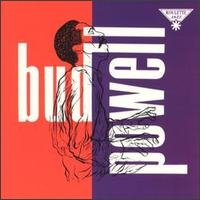
Bud Powell Trio is a studio album by jazz pianist Bud Powell, released on Roost in 1957, featuring two sessions that Powell recorded in 1947 and 1953. The 1947 session was Powell's first studio recording as leader, and was originally released as a 10" LP called The Bud Powell Trio.
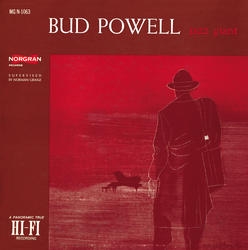
Jazz Giant is a studio album by jazz pianist Bud Powell, released on Norgran in 1950, featuring two sessions that Powell recorded for Norman Granz in 1949 and 1950.

The Genius of Bud Powell, originally titled Bud Powell's Moods, is a studio album by jazz pianist Bud Powell, released in 1956 by Mercury / Clef, featuring two sessions that Powell recorded in 1950 and 1951.
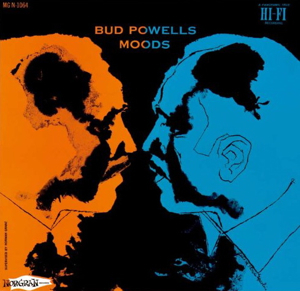
Bud Powell's Moods is a studio album by jazz pianist Bud Powell, released in 1956 by Norgran, featuring sessions that Powell recorded in 1954 and 1955.

Jazz Original, also known as Bud Powell '57, is a studio album by jazz pianist Bud Powell, released in 1955 by Norgran, featuring sessions that Powell recorded at Fine Sound Studios in New York in 1954 and 1955.

Piano Interpretations by Bud Powell is a studio album by jazz pianist Bud Powell, released in 1956 by Norgran, featuring two sessions that Powell recorded at Fine Sound Studios in New York in April 1955.
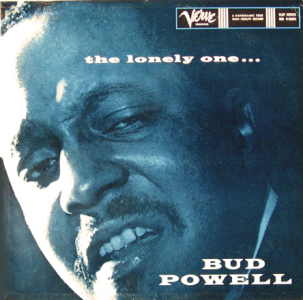
The Lonely One... is a studio album by jazz pianist Bud Powell, released in 1959 by Verve. It contains three sessions that Powell recorded at Fine Sound Studios in New York in 1955.
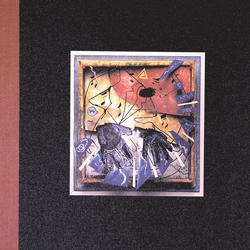
The Complete Bud Powell on Verve is a five-disc box set, released on September 27, 1994, by Verve Records, containing all of jazz pianist Bud Powell's recordings as leader for producer Norman Granz.

Strictly Powell is a studio album by jazz pianist Bud Powell, released in 1957 by RCA Victor, featuring a session Powell recorded in 1956.
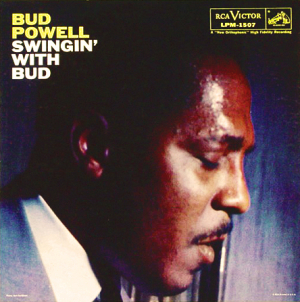
Swingin' with Bud is a studio album by jazz pianist Bud Powell, released in 1958 by RCA Victor, featuring a session Powell recorded in 1957.
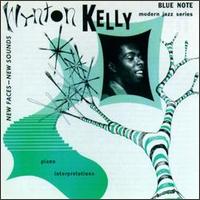
For the album of the same title by Bud Powell, see Piano Interpretations by Bud Powell.

Bright and Breezy is an album by jazz pianist Red Garland and his trio, recorded in 1961 and released on Jazzland as JLP 48. Sam Jones had been the trio's bassist for two years. Art Taylor, who had played drums in the Red Garland Trio since 1956, was replaced by Charlie Persip in 1960. This was the first of four sessions by Garland for the Riverside subsidiary label, that were recorded at the Plaza Sound Studios by Orrin Keepnews. In October 1962 he would record a last session for his former label Prestige before taking a hiatus of nearly ten years.

















